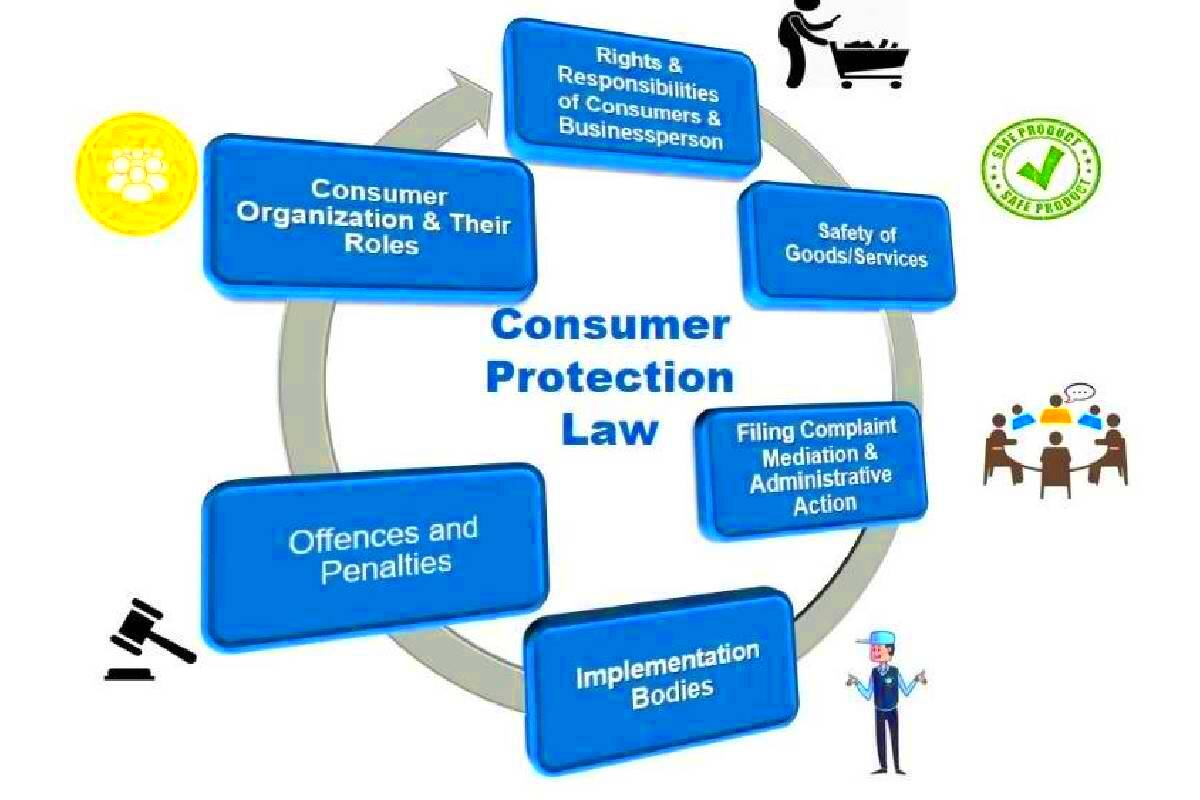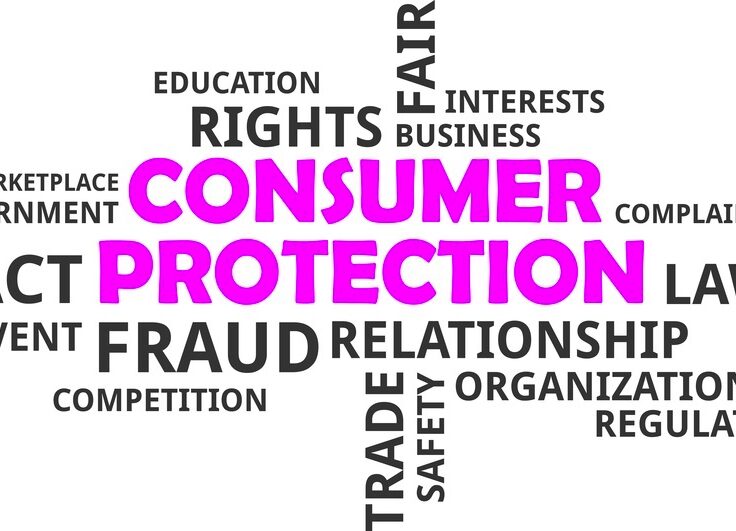Understanding Vermont Consumer Protection Laws
Vermont consumer protection laws are designed to safeguard individuals from unfair business practices and ensure they receive fair treatment in the marketplace. These laws cover a range of issues, from false advertising to defective products. Understanding these laws can empower consumers, allowing them to make informed decisions and take action when necessary. In this post, we will explore key rights, common deceptive practices, and how to file a complaint, all aimed at helping you navigate the complexities of consumer rights in Vermont.
Key Consumer Rights in Vermont

As a consumer in Vermont, you have several important rights that protect you in various transactions. Here are some key consumer rights to keep in mind:
- Right to Safety: You have the right to be protected against products that are hazardous to your health or life.
- Right to Information: You deserve accurate information about products and services, including prices and terms.
- Right to Choose: You have the right to select from a variety of products and services without undue pressure.
- Right to be Heard: You have the right to voice complaints and concerns about products and services.
- Right to Privacy: Your personal information must be protected by businesses, and you should be informed about how it is used.
These rights ensure that you can make informed choices and have a recourse if something goes wrong.
Understanding Fraud and Deceptive Practices
Fraud and deceptive practices can take many forms, and being aware of them is crucial for every consumer. Here are some common types of deceptive practices to watch out for:
- False Advertising: Claims that misrepresent the quality or benefits of a product or service.
- Pyramid Schemes: Investment schemes that promise high returns with little risk but require recruiting others to join.
- High-Pressure Sales Tactics: When salespeople push you to make quick decisions without giving you time to think.
- Unwanted Subscriptions: Charges for services or products you didn’t sign up for, often buried in fine print.
If you encounter any of these practices, it’s essential to document the details and seek guidance on how to proceed. Vermont law allows consumers to report these issues, helping to protect others from falling victim to similar scams.
How to File a Complaint
If you believe your consumer rights have been violated in Vermont, filing a complaint is a straightforward process. Here’s how you can do it effectively:
- Gather Information: Before filing a complaint, collect all relevant information. This includes receipts, contracts, emails, and any other documentation that supports your case.
- Identify the Business: Make sure you know the full name and address of the business you’re complaining about. This will help direct your complaint to the right place.
- Contact the Business: Try reaching out to the business first. Sometimes, issues can be resolved directly without the need for formal complaints.
- Choose the Right Agency: In Vermont, you can file your complaint with various agencies depending on the issue:
- Vermont Attorney General’s Office for general consumer complaints.
- Vermont Department of Financial Regulation for financial products and services.
- Vermont Department of Health for health-related complaints.
- Submit Your Complaint: Follow the guidelines provided by the chosen agency to submit your complaint. Most agencies allow you to file online or by mail.
After filing, keep a record of your complaint and any correspondence. This documentation may be crucial if you need to take further action.
Role of the Vermont Attorney General
The Vermont Attorney General plays a vital role in protecting consumer rights. This office not only enforces consumer protection laws but also educates the public on their rights. Here are some key responsibilities:
- Enforcement: The Attorney General investigates complaints about unfair or deceptive business practices and can take legal action against violators.
- Consumer Education: The office provides resources and guidance to help consumers understand their rights and how to protect themselves.
- Advocacy: The Attorney General advocates for stronger consumer protection laws and policies at both the state and national levels.
- Mediation: The office may offer mediation services to help resolve disputes between consumers and businesses without going to court.
By being aware of the Attorney General’s role, you can better navigate the resources available to you as a consumer.
Consumer Protection for Specific Products and Services
Consumer protection laws in Vermont extend to a wide range of products and services. Here’s how these laws apply to various categories:
| Category | Protection Focus |
|---|---|
| Food and Beverages | Regulations ensure safety standards and proper labeling to prevent misleading claims. |
| Housing and Real Estate | Consumer protections address issues like fair housing and tenant rights. |
| Health Care Products | Regulations ensure the safety and efficacy of medical devices and pharmaceuticals. |
| Financial Services | Rules prevent deceptive practices in lending, mortgages, and investment products. |
Understanding the specific protections available for different products and services can help you recognize your rights and take action when necessary. Always report any issues to the appropriate authorities to help maintain a fair marketplace for all consumers.
Recent Changes in Vermont Consumer Protection Laws
Keeping up with changes in consumer protection laws is essential for both consumers and businesses. Vermont has recently made some notable updates to enhance consumer rights and address new market challenges. Here are some of the key changes:
- Strengthened Regulations on Online Sales: New rules require online retailers to provide clearer information on return policies, shipping costs, and estimated delivery times. This aims to reduce confusion for consumers shopping online.
- Expanded Protections Against Identity Theft: Recent legislation has introduced stricter requirements for businesses to protect consumer data. This includes notifying consumers promptly in case of a data breach.
- Increased Penalties for Deceptive Practices: To deter fraudulent activities, penalties for businesses found guilty of deceptive advertising have been increased, making it more costly to engage in such practices.
- Consumer Assistance Programs: Vermont has expanded programs to help consumers understand their rights, providing more resources and outreach to educate the public.
These changes reflect a commitment to keeping consumers informed and protected in a rapidly evolving marketplace. Staying aware of these updates is crucial for making informed decisions as a consumer.
FAQs About Vermont Consumer Protection Laws
Many consumers have questions about their rights and how to navigate Vermont’s consumer protection laws. Here are some frequently asked questions:
- What should I do if I feel my rights are violated? Start by gathering evidence and attempting to resolve the issue directly with the business. If that fails, you can file a complaint with the appropriate agency.
- How long do I have to file a complaint? Generally, you should file a complaint as soon as possible. Each agency may have its specific time limits, so it’s best to act promptly.
- Can I get a refund for defective products? Yes, under Vermont law, consumers have the right to return defective products for a refund or replacement.
- What types of complaints can I file? You can file complaints about a wide range of issues, including false advertising, defective products, and unfair business practices.
- Is there a cost to file a complaint? No, filing a complaint with consumer protection agencies in Vermont is typically free of charge.
Understanding the answers to these questions can help you feel more empowered as a consumer.
Conclusion on Vermont Consumer Protection Laws
Vermont consumer protection laws play a vital role in ensuring that consumers are treated fairly in the marketplace. By understanding your rights and the resources available to you, you can make informed decisions and protect yourself from unfair practices. Whether it’s through filing complaints, seeking assistance from the Attorney General, or staying informed about recent changes, being proactive is key. Remember, consumer protection laws are designed to empower you and promote fairness in transactions. Always stay vigilant and advocate for your rights as a consumer.


